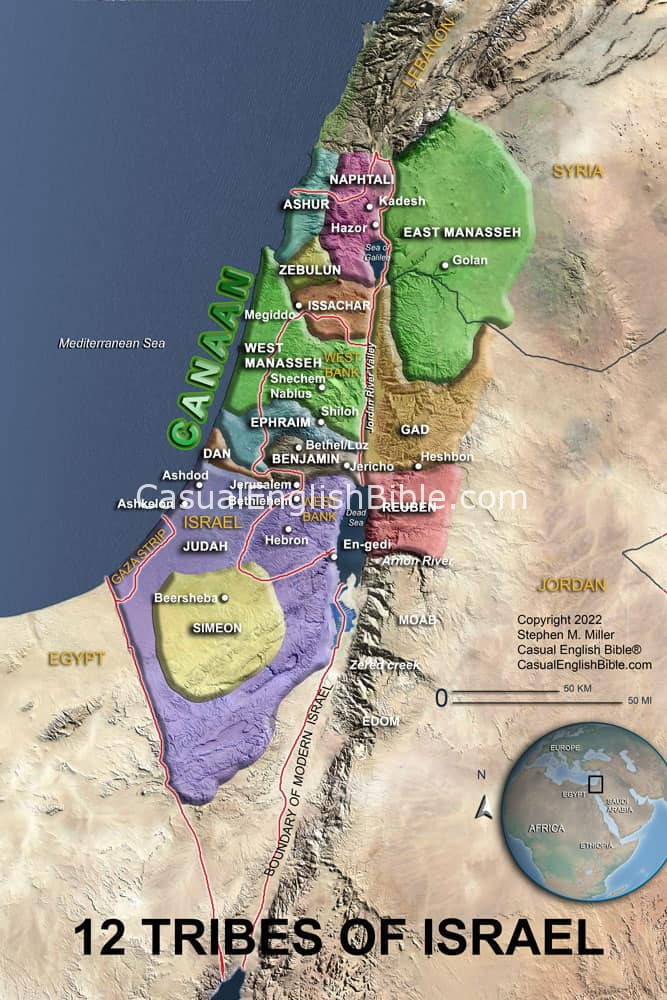Zechariah 10
Israel and Judah rise again
Stallion nation of Israel
1Go ahead, ask the LORD for spring rain.He’s the one who makes the clouds
That cause the storms,
That drop the rain,
That color our fields in golden grain.
2Figurine idols mislead you.
Fortune tellers get it wrong.
Prophets lie about dreams.
The comfort they offer
Is as fake as their dreams.
These are why my people have strayed,
As sheep nibbling their way into trouble,
Until they’re lost without their shepherd.
God: "I’m angry"
3I’m angry at the shepherds [1] who didn’t shepherd,And I’ll punish those mean ol’ goats. [2]
The LORD of people everywhere takes care of his flock:
People from the land of Judah.
He’s going to turn this nation into a stallion,
The war horse he rides into battle.
4Judah will become a stabilizing power:
The cornerstone of a building,
The anchoring peg of a tent,
The battle bow of an archer
And the ruler of the people.
5They’ll become like an elite fighting force,
Walking over enemies dead in the street.
When they fight, the LORD stands with them.
Judah’s infantry will put to shame the enemy’s cavalry.
6The nation of Judah will rise again. I’ll see to it.
I’ll also save Joseph’s descendants, [3]
Jews of the northern tribes.
I’ll bring them all home because I care about them.
It will be as though I never rejected them.
I’m their God, and I’ll answer them when they call.
7Northern Jews of Ephraim [4] will grow strong, like warriors.
They’ll grow happy, too—like people celebrating with wine.
Their kids will be delighted to see their parents happy again.
Everyone with thank the LORD for it.
8I’ll send them word to come home.
I’ll tell them they’re free because I rescued them.
This land will become home to many of them—
To as many as there ever were before.
God calls Israel home from foreign lands
9I scattered them to countries far away.Yet even there, they remembered me.
They raised their children in those foreign lands.
And now they’ll take them home.
10I’ll bring them back from Egypt. [5]
I’ll bring them from Assyria, too.
I’ll pour them into Gilead
Until they overflow in Lebanon
And run out of places to live.
11They’ll have to pass through deep water, [6]
But I will calm the sea.
I’ll put a stop to Egypt’s power,
Like I’m drying up the Nile. [7]
I’ll take away their throne as well,
And bury Assyria’s pride.
12I’ll use my power to make my people [8] strong
And in that strength, they’ll walk with me.
So says the LORD.
Footnotes
If ever a Bible verse needed a good transition, here it is. Verse 2 says there are no shepherds. Verse 3 says there are shepherds, and God is mad at them. It’s unclear which shepherds got him angry and why. “Shepherd” was another way of referring to a leader, just as it is today, especially among Christians talking about church leaders. Perhaps God was angry about the bad leaders who pulled the Jews so far away from God that God kicked them out of his Holy Land. Assyrians exiled northerners in 722 BC, Babylonians the southerners in 586 BC. Or maybe God was angry at the current generation, who didn’t seem eager enough to rebuild the Jerusalem Temple.
Literally, “he-goats.” This is a Billy Goat, sometimes called a Buck Goat. The Hebrew word shows up in Ezekiel 34:17 and Isaiah 14:9 as, ʽattûd. It was not a compliment. Kind people reportedly usually raise kind Billy Goats. But a goat raised by a mean person might knock you down and out, and then eat the shirt off your back. That may be the he-goat Zechariah was talking about.
“Joseph’s descendants” is a way of talking about the northern Jewish nation of Israel, which Assyrian invaders erased from the world map in 722 BC, by conquering the cities and exiling the survivors. Joseph’s two sons, Ephraim and Manasseh, produced families and clans that grew into two tribes named after the men. But tribes broke away from United Israel after King Solomon died. It was over high taxes and the king’s drafting of workers for royal building projects.
Like “Joseph’s descendants,” “Ephraim” was another nickname for the northern Jewish nation of Israel. Ephraim became the dominant tribe. The tribe lived in the center of what today is considered the Holy Land, home to Israelis and Palestinians.
Some Jews managed to escape from the Assyrians and a later generation from the Babylonians. Some fled to Egypt, where they lived as immigrants instead of captives. The prophet Jeremiah went to Egypt, though against his will (Jeremiah 43). He had predicted that Jews who went there would die of war, famine, and disease (Jeremiah 42:22). Others who fled there anyhow insisted he join them. As far as the Bible writers are concerned, Jeremiah was never heard from again.
“Pass through deep water” would have reminded Jews of the story of their ancestors escaping from Egypt’s army when God blew an escape route through a body of water (Exodus 14). “Calm the sea” would later lead Christians to think of Jesus calming storms on the Sea of Galilee, a huge freshwater lake in northern Israel (Matthew 8:23-27; Mark 4:35-41).
The Nile River was the source of Egypt’s power, and home to most Egyptians, then and today. Most Egyptians built their homes within a few miles/kilometers of the Nile. Beyond that lay mostly deserts too barren for humans to live.
It’s a guess who God was making strong. The original Hebrew text says only that the LORD would strengthen someone. It doesn’t say who. There are times when Bible writers, Zechariah among them, reported that God welcomed non-Jews (6:15, 9:1). So, this could refer to Egyptians and Assyrians. But most scholars bet on the Jews.
Discussion Questions
- Sorry, there are currently no questions for this chapter.









